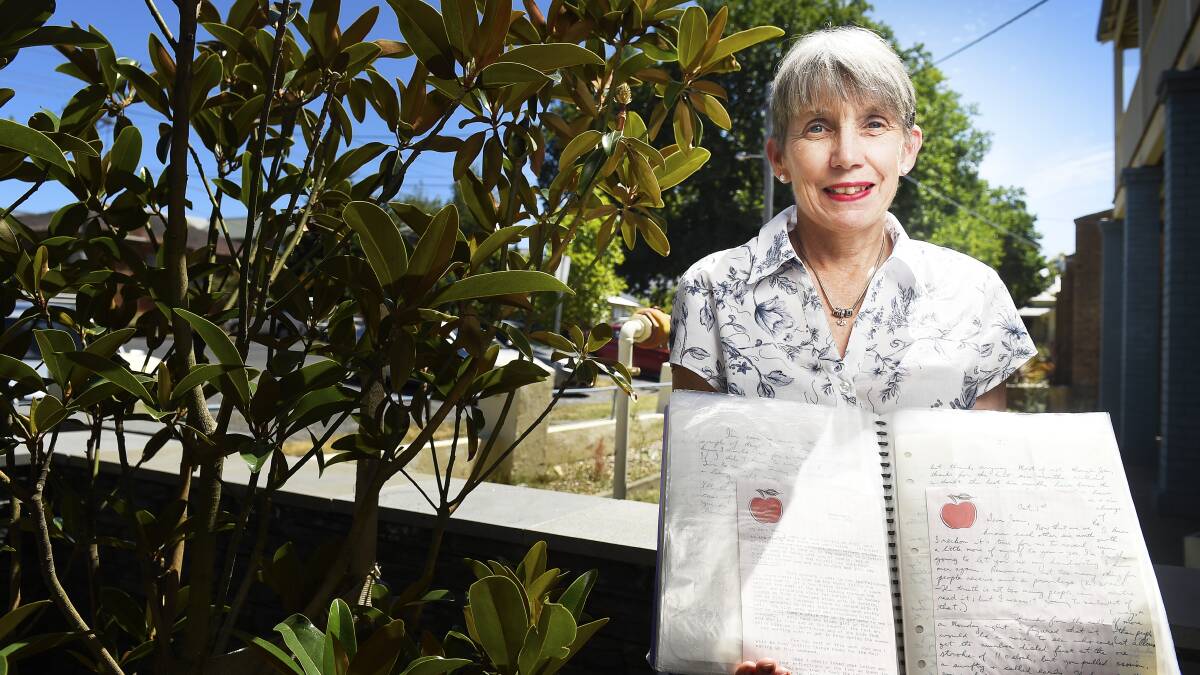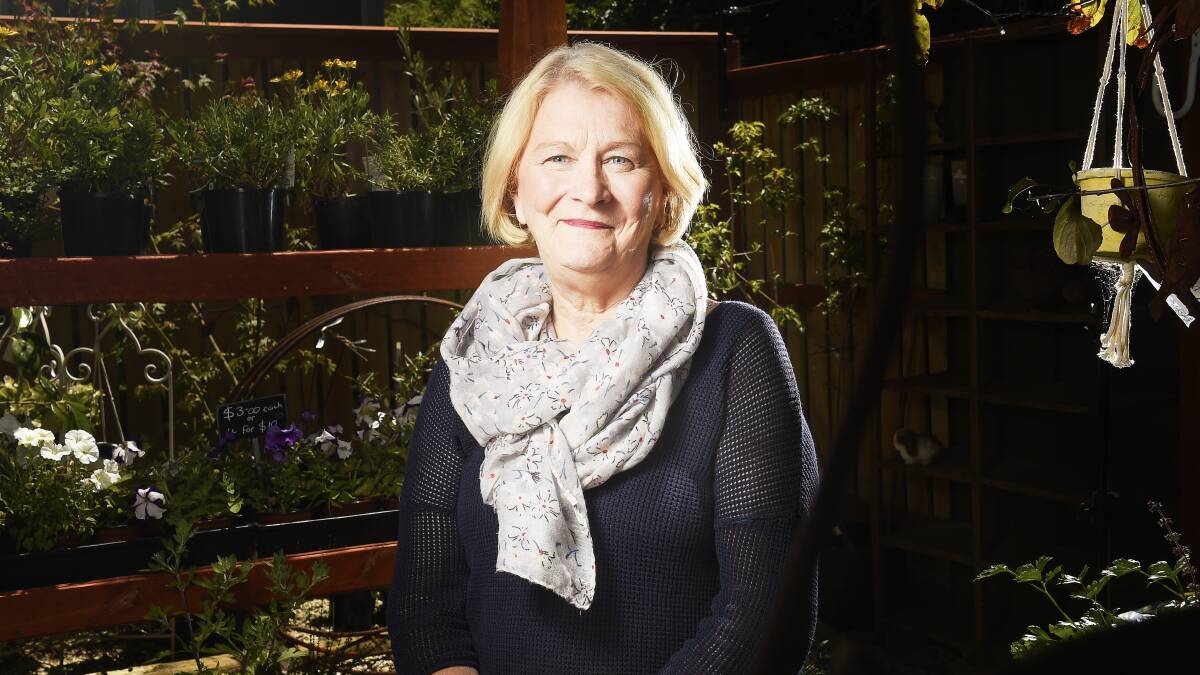
For Joan Brick and Glenda Hipwell, a dementia diagnosis only made them love their husband and mother more.
Subscribe now for unlimited access.
or signup to continue reading
And both became adept at creating “sparkly” moments to keep the love well and truly alive.
Both women will also speak at a symposium on love and dementia, called Small Acts of Love, which will be held on February 13-14 at the Ballarat Mechanics’ Institute.
Hosted by the OPAL Institute, part of the Celebrate Ageing Program, it will focus on the importance of love in the lives of people living with dementia, especially identifying small acts of love.
Speakers will include people with dementia and their loved ones, who have also helped compile a book edited by symposium curator Dr Catherine Barrett.

These include Sue Pieter Hawkes, whose mother and former Australian first lady Hazel had dementia, former school principal John Quinn, whose battle with dementia caused severe depression, and Ballarat’s Anne Tudor, who, together with partner Edie Mayhew, started the international Letters of Love and Dementia Campaign.
Now Joan and Glenda tell The Courier about their personal experiences with love and dementia.
Until the day John Brick died in his wife Joan’s arms on June 28 last year, the pair still did all their usual activities.
“We just did them differently,” Joan said.
Six years earlier, John was diagnosed with temporal frontal lobe dementia and, a year later, motor neurone disease. Joan says the dementia was a “blessing in disguise” because it made John less frustrated by the restrictions of his MND.
But they were determined it wouldn’t stop them living a full life.
“We could no longer take plane trips so we’d bid on those travel show auctions and take a cabin in Eildon or Port Fairy.
“We visited family and friends and I’d take John to my walking group lunches.
“It’s important to keep that person engaged in what they used to do. You can never think they don’t know what’s going on.
“You have to do whatever you can to keep the intimacy, as in every aspect of your life.”
But, at the same time, Joan knew she needed to forge her own life.
In fact, her presentation at the symposium will be called: “Finding John, Losing John, Finding Joan”.
The Finding John part was not that easy. The pair met in Joan’s home country of the United States when John was studying to become a priest.
They maintained a close, long distance friendship over 12 months while they both took time out to decide on their future.
In fact, part of what sustains Joan since John’s death is reading the letters they wrote each other over that time while she was in Chicago and he was in Louisiana. They fill two big folders.
The pair eventually married and moved to John’s home country of Australia for Joan to take up a teaching position.
John also eventually became a teacher at St Martin’s in the Pines and then Damascus College.
The first signs of John’s dementia came with a lack of conversational engagement and a call from a concerned colleague about John not having his usual meticulous attention to detail.
Joan says two things changed her life after John’s diagnosis – she joined a support group where she could express whatever emotions she was feeling without judgement and they discovered Ballarat Health Services’ respite centre Eyres House, where John delighted in his own special time and activities and Joan was free to still pursue her interests.
“You have to try and not be a martyr,” Joan said.
“You still have to be their carer, their wife, but you have to accept support and assistance.
“You constantly need an avenue to express what you’re going through.
“And Eyres House provided me with the means to love John even more. Every time I picked him up from Eyres House, I was so glad to see him and he was so glad to see me.
“John had his thing now and I had to develop my own thing. It’s normal and so easy to feel guilty though.”
Even though she found John, lost John and eventually found Joan again, Joan wouldn’t have it any other way.
“I knew from the first day I saw him, he was the one.”
When Glenda Hipwell visits her mother Laurel in the Creswick Hospital nursing home, she always musters a big smile first.
“I really make a big fuss of it. I snuggle in next to her neck but I always ask her first because sometimes she doesn’t know who I am,” Glenda said. “By doing this, she knows I’m special to her and she responds, absolutely.”
Glenda always gives her mother a compliment, which helps engage her social skills, and uses touch, such as a facial or massage, to connect.
“I talk about family, things that she can connect with. I’ve got to create a moment when I’m there, that’s a “sparkly” moment that I know we’ve created.”
Glenda always had an interest in dementia that was first sparked when she began visiting dementia patients at the former QEGC while she was still at high school.
She has since studied diversional therapy and psycho-geriatrics – “I wanted to know the science behind what I was doing” – and worked for Alzheimers New South Wales and Alzheimers Australia when she moved back to Creswick in 2009 when Laurel was first diagnosed.
Her mother’s mixed dementia – which is both vascular dementia and Alzheimer’s – manifested in forgetfulness and personality changes, such as anxiousness.
Glenda said she always tries to keep their interactions “in the moment” and says everything in the present tense.
“I talk about life in Kingston and how involved she was in community work and she just beams. I am sure that when I leave she knows innately that she is loved and that we are intrinsically connected.
“I know this because we will share moments, looks, glances, smiles, laughs and, sometimes, a special wink that is shared only with someone you love.
“On a good day, she will say something that will make my heart sing like ‘we know each other well don’t we’.
“I look forward to every visit – I know we’re going to create something special every time.”
Symposium curator Dr Catherine Barrett said there is currently no information on dementia and love to help service providers and assist community responses.
Dr Barrett said, to address this gap, the symposium will include the launch of an edited book and several resources on dementia and love. Two short films will also be produced.
“Symposium delegates will be guided through an understanding of the significance of love and how small acts of love can transform the lives of people with dementia,” Dr Barrett said.
For more information, go to opalinstitute.org/dementia-and-love.


